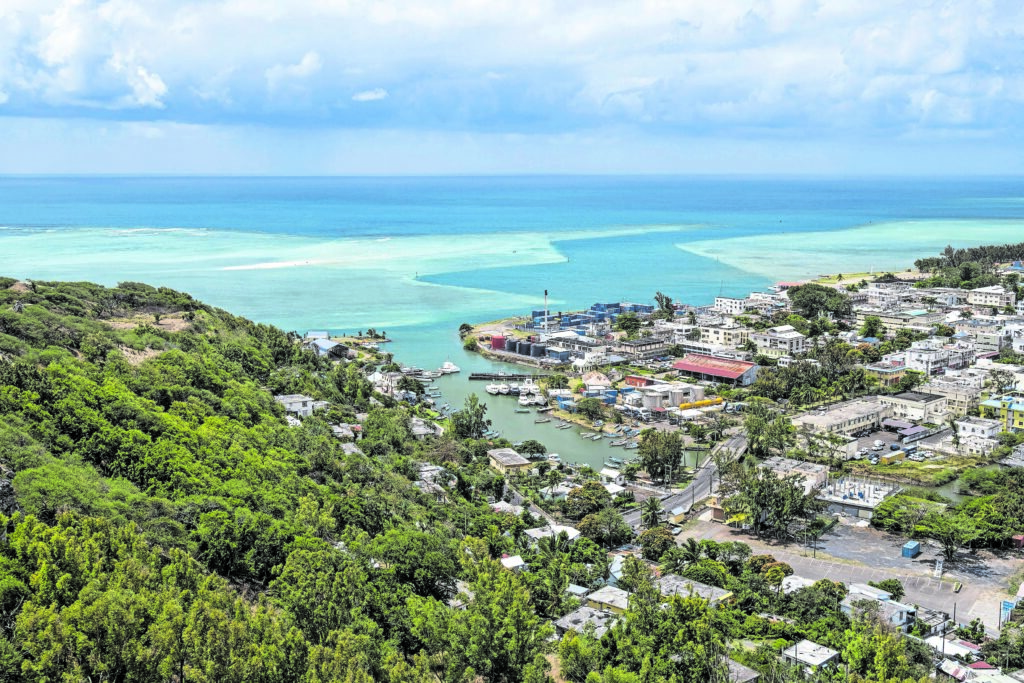Nesting: Some residents of Rodrigues defy the trend of working in Mauritius or abroad by finding local employment. Photo: Guiziou Franck Hemis fr/AFP
Rodrigues, a speck of green in the western Indian Ocean and an autonomous part of the Republic of Mauritius, is so far off the beaten track that most young people growing up on the island have to leave to find work.
The island, 650km east of Mauritius, 108km2 in size and with a population of 40 000, has seen an equal number of its population leave to seek work in Mauritius and the diaspora.
That won’t be the future for Kimberly St Marie, 21, however. Or for Murielle Ravina, 26. Or Jean Christ Speville, 40, or Jean Karl Guilaineda, 30. The four Rodriguans are connected by their desire to improve the island’s future prospects — and none of them wants to leave anytime soon.
The four are part of a generation of young islanders in the Indian Ocean who are refusing to leave their island to find work abroad as their forbears did. Instead, they are turning to technology to find ways to preserve and create jobs and work productively, from home.
“There are still many things that can be done here. New projects than can be developed from what we already have,” said St Marie, who lives in Mourouk, a tourist destination on the island. The reason there are now opportunities: the arrival of a fibre optic cable in the mid-2000s, which also brought back many who had already left.
Ravina represented Mauritius and Rodrigues in the final of the Miss World 2018 contest.
“After that experience, I could have been tempted to stay somewhere else, but I decided to come back home to be with my family and to help develop the country,” she said. She now works as a teacher on the island.
Guilaineda worked in the business process outsourcing (BPO) sector, which includes often-outsourced functions such as payroll, accounting, telemarketing, data recording, social media marketing and customer support.
He came back to Rodrigues with a clear mission in mind: “Promoting the sector of BPO in Rodrigues and make people understand that this represents their future.”
He is the head of communications and marketing of ProContact Rodrigues, the island’s first call centre, which opened its doors two years ago.
Traditionally, jobs came from the fishing, agriculture and crafts sector, with tourism, the public sector and education absorbing a limited number of tertiary students. This is now changing. A can-do spirit seems to pervade the island. Many credit the country’s relative autonomy.
In October 2002, the territory gained autonomy from Mauritius. Decisions taken in the Rodrigues Regional Assembly are now more in line with realities on the island. For example, Rodrigues voted for the banning of plastic bags and further regulated lagoon fishing, years before Mauritius did so.
Speville said he could have had a more stable job had he stayed in Mauritius where he studied communication, accounting and events organisation, but 10 years ago, he, too, returned to the island.
 Mauritius, Rodrigues island, panoramic view of Port-Mathurin (Photo by GUIZIOU Franck / hemis.fr / hemis.fr / Hemis via AFP)
Mauritius, Rodrigues island, panoramic view of Port-Mathurin (Photo by GUIZIOU Franck / hemis.fr / hemis.fr / Hemis via AFP)
The internet has offered new opportunities, often in marketing and communication, but jobs don’t all have to be exclusively web-based. In 2013, Speville got the kitesurfing schools and tourism stakeholders together and launched the Rodrigues International Kitesurf Festival. With the democratisation of information that the internet has brought, the event could be publicised despite its remote location.
It has attracted more and more kitesurfers each year, providing the stunning location of Mourouk bay with extensive media coverage — a virtuous circle.
“There is no place like home, especially if we are here with our family to look after one another,” explained Guilaineda.